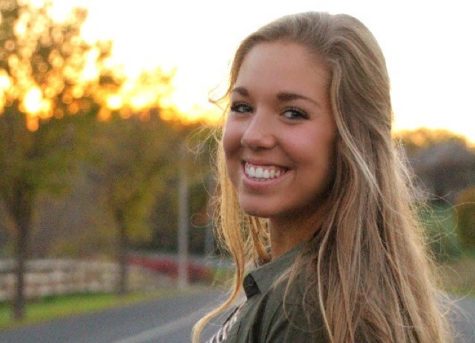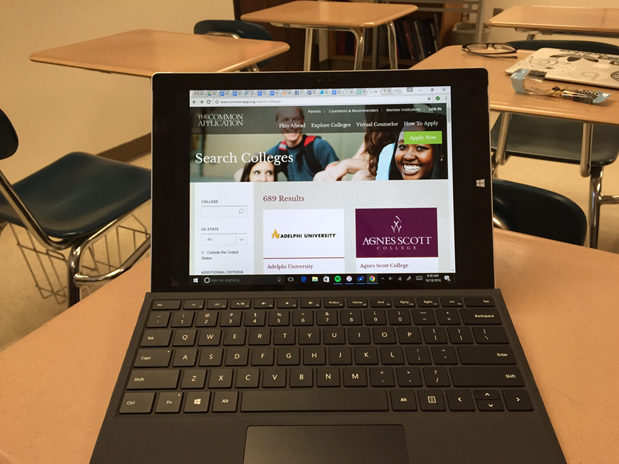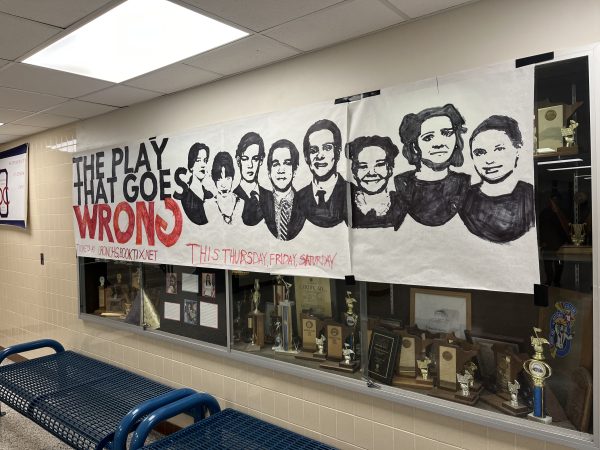Prospective College Students: Are you prepared?
A few tips as students begin the college search process.
How many times have you been asked what colleges you’re looking at? What your intended major is? Or where you’re applying to? If one of these questions were to be proposed to several high school students, their responses may result in frustration due the number of times they have been questioned.
“Ideally, students should start preparing for college in the 9th grade, that is when the college applications will start asking what rigorous classes one took to prepare for college, while being involved in activities/extracurriculars and finding a balance between one’s activities,” college admissions consultant Dr. Lisa Thomas said.
The freshman and sophomore years are meant to explore one’s interests, get involved in engaging extracurriculars and stay on top of classwork. College applications ask what students were involved in as they were underclassmen, and oftentimes students are lacking in this area. Students are to create a vision they wish to take action upon and achieve early on.
It’s better to start the process earlier rather than later, as long as you’re tackling it in small pieces at a time,
— Hannah Gronberg
“Students without a vision of an ideal school fitted to their interests may perish,” Thomas said.
According to a credible college prep website called Big Future, students should create deadlines for completing required and supplemental essays, gathering letters of recommendation, and completing application forms a few weeks before the deadline unfolds. Students are advised to mark the earlier deadlines on their personal calendars, and to set reminders in order to not forget about these deadlines.
“I keep a detailed schedule in my planner so I know what I need to do next in the process, and when I need to complete it,” senior Maggie Brick said.
In the process of finding desirable colleges, the applications begin to unfold. According to US News, it is ideal to have about 6-7 schools to apply to. When applying, it is imperative to have an organized system of essay writing, arranged resumes, and an official transcript.
It states that there are 689 schools that use the common app on www.commonapp.org. This website makes it quite efficient to submit supplemental essays and one’s basic information, it comes to show that students need not to over-stress in the process.
“When writing essays, it is important always be sure to talk in the first person, and tell them who you are, to show them your voice. Communicate your value to the potential campus, and understanding what your true value is as a person and as a student,” Thomas said.
It is important for the student to write about a moment that changed their perspective, a particular passion of theirs, or something that describes the student to an extent that the transcripts, resumes, and test scores can not reflect.
While starting this process, it can be overwhelming to students as crunch time begins in the fall for seniors. Balancing the school work and applications takes time management, and it all comes down to fine adjustments to one’s schedule.
“It’s better to start the process earlier rather than later, as long as you’re tackling it in small pieces at a time,” senior Hannah Gronberg said.
As students continue building their resume from freshman year onward, the focus on gathering information from schools of their interest junior and senior year becomes more prevalent.
As they get a feel for potential careers or areas of study they are interested in, some may find what academic rigor they desire in a college, the size of the school they see themselves attending and/or the specific extracurriculars to get involved in. This ranges from athletics, to the fine arts, to greek systems and much more.
Certainly, it is important to know one’s self and the desires of their heart for their future careers. There are thousands of colleges out there for everyone, it is not only the large universities that students see on TV with elaborate sporting events and immense greek housing.
Although those types of universities offer an endless variety of opportunities to stay involved and challenge one’s self in academics or athletics, there are many smaller, liberal, private, and centrally located schools to choose from. It all boils down to what the student wants to study, be involved in, and flourish as not only a student, but as a person.
“Becoming self aware of what is important to a particular student, and what one desire’s in a college academically, socially, and culturally are is crucial in finding a school of best fit,” Thomas said.
Students feel that when choosing a college, the need to know exactly what field of study or major they would potentially like to pursue. According to Thomas, that assumption is inaccurate.
“Over 70 percent of students apply as undecided in their area of major in the application process, they wish to explore the intended majors as they search colleges, get involved in undeclared courses and some courses that the majority of universities offer to narrow down the decision,” Thomas said.
Believe it or not, prospective college students can have up to two full years to decide which major they wish to pursue.
Along with finding a school of best fit and narrowing down the field of your intended major, “it is important to have a balanced list of schools one may be applying to, as some students shoot for schools that do not meet their academic potential, and some reach too high and miss out on thousands of other college options available to them,” Thomas said.

Morgan Marxer is one of the stars of the Orono High School varsity volleyball team. When asked what she wanted to do when she grew up, she responded, “Well,...













